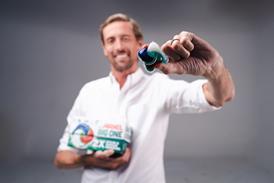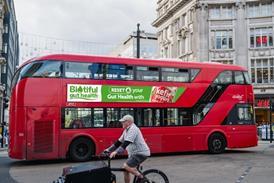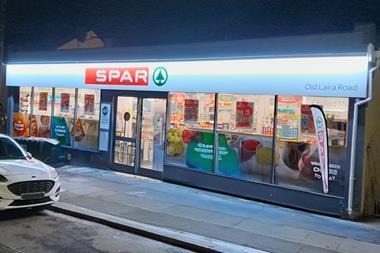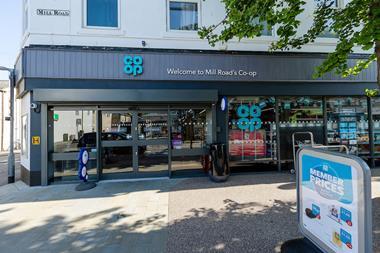Where have all the reps gone? Gaelle Walker examines the argument that rural retailers are being cut adrift as visits from suppliers become a thing of the past
Question: What do manufacturers’ sales representatives and buses have in common? Well, if you’re lucky enough to have a visit, they are likely to all come at once. But just as rural bus services are disappearing fast, for many retailers in more remote areas, the reps don’t come at all.
Last month, Convenience Store ran a news story about the decline in visits to rural retailers - and, judging by the response that it generated, the problem is even more acute than we first suspected.
Rural independent retailers from the downs of Devon to the remote Shetlands contacted us to say that they felt “abandoned” by manufacturers’ reps, and in a recent online poll almost 70% of those who responded said they were not satisfied with the level of support that they received.
It’s a problem which means rural stores are missing out on new product sales opportunities, and those all-important margins.
“Nestlé, Mars and Cadbury used to be in regularly, but visits started to slow a couple of years back and are now very sporadic,” explains Pippa Heritage of Barns Green Village Stores in West Sussex.
“We haven’t seen anyone from Cadbury since last July, and Coca-Cola told us last year that they simply wouldn’t be visiting any more as we were just too challenging to service. It’s a real shame as it means that we sometimes miss out on new product launches. I read Convenience Store to keep abreast of all the developments, but we still miss some new lines,” she says.
“Also, the reps used to offer some really good reward schemes. Over the years we got a digital camera and all sorts of other bits and bobs, but now there’s nothing at all. We’re the only store for a few miles around and our confectionery sales are strong so it’s quite disheartening,” Pippa adds.
In the Shetland Isles, Tagon Stores owner Scott Preston says he hasn’t seen any of the big three confectionery reps for more than three years. His only support systems are the trade press and the annual fairs held by his wholesalers Hughson Bros and JW Gray & Co. “However, even their support has been knocked back,” he says.
“We genuinely feel abandoned. I’ve got nothing to rely on but my own instinct. I’m putting my finger in the air and saying, ‘this might work’. I go out and look at the other convenience stores on the island to see how they price things as I have no idea what the rrps for things should be. It can be a real challenge,” he says.
And the desertion is particularly troublesome when stores have a problem, as Barnstaple retailer Lesley Brown of Frankmarsh Stores recently found. “Despite asking for help, it just felt like they would rather deal with the multiples,” Lesley laments. “We were recently informed by Coca-Cola that after April they would no longer be visiting independents in North Devon as they cannot get in enough calls in a day. It’s a similar story with some of our confectionery reps. Sometimes we go months without seeing anyone,” she said.
Even more worryingly, it’s not just the major manufacturing players who are losing interest. “I sell more than 30 different lines of Border biscuits in my store, but I have never once seen a rep from the company,” West Sussex retailer Colin Woods of Amberley Village Stores explains.
Fortunately, given the volume of legislative changes hammering down on the category, and the fact that large stores and supermarkets in most parts of the UK are now complying with a display ban, the UK’s tobacco manufacturers are among the few still keen to maintain visits to small rural outlets, where effective merchandising and high standards are now crucial. “JTI reps, in particular, are good and they stop by the store at least every couple of months,” Pippa adds, “but there is next to no sign of reps from other categories and companies.”
Scott reports a similar scenario. “JTI and the other cigarette manufacturers manage to visit once a year. The only other rep to have visited was from Country Choice, who openly admitted he was not allowed to come more than once every 18 months.”
Admittedly, reaching the Shetland Isles is something of a challenge, requiring either an overnight ferry crossing or a flight. However, less than 10 miles out of Northampton in the village of Creaton, retailer Sylvia Winter is experiencing the same problems.
There’s no doubt that suppliers are cutting back on visits to small and rural stores, she says. “Everyone is looking to cut costs where they can - even big companies. Reps are being given wider areas to cover and they’re expensive to keep on the road - you’ve got the price of their company car and the cost of petrol. They can go to one large city centre store which might take five boxes of product, whereas they’d have to make five separate visits to smaller stores to get the same amount of business.”
It’s a cycle that Edinburgh Premier retailer and former manufacturer sales representative Linda Williams has seen before. “As we are in a city, and I suppose because we are fairly high profile, we are very well served, but even we have seen a decline in visits,” she says. “When money is tight, the accountants come in and slash the rep budget.” she says.
“For suppliers, the independent sector, and rural outlets in particular, are the most difficult with which to communicate,” Rural Shops Alliance chairman Trevor West believes. “Keeping a sales force on the road is a huge cost and there is a limit to what can be achieved in a 30-minute monthly visit.”
Perhaps unsurprisingly, the five major suppliers contacted by Convenience Store denied that services to rural convenience stores were being cut. “In actual fact, in recent years we’ve invested more money in more people to visit outlets,” Nestlé UK trade communications manager Graham Walker says.
Scott, however, isn’t convinced. “I’m sure it has, but how is servicing 15 more Londis convenience stores in Birmingham helping me up here? We need greater parity,” he asserts.
He’s certainly not alone in his call. In its report Rural micro-businesses: what makes some thrive in a challenging economic climate?, the Commission for Rural Communities urged the government to introduce measures to ensure a level playing field between urban and rural businesses.
So what’s the solution to this problem? Will cuts see rural stores - key lifelines for so many countryside communities - set further adrift from support?
“One solution could be for those suppliers not making calls on rural outlets to make sure they have an easily accessible trade-only area on the internet,” the RSA’s West suggests.
Another idea could be for wholesalers to host quarterly forums in depots where retailers could meet key suppliers, Lesley offers up.
Linda also calls for greater analysis of which stores welcome reps visits, what they want out of them, and how often they want them. “Let’s not forget that there are some store owners who are just not that interested in engaging, and calls are a total waste of time and money. Reps should only be calling on stores who want to see them, and companies should target accordingly. You may get 100 stores in a city centre, but achieve less than in the 27 stores in the Shetlands,” she says.
Linda points out that she encourages the reps to call first, and to give a brief outline of what they hope to achieve from the visit, and she in turn tells them what she needs. “We can also have epos data ready to track the performance of the category concerned, and their brands in particular. That way, if you are only going to get an infrequent visit, all concerned can make sure that there are positive outcomes, and nobody is wasting their time,” she adds.
“I’d be happy even if they agreed to come once a year in the summer,” Scott adds, “as long as they made it one really good visit and brought all the order forms, POS and planograms with them. One visit would be better than nothing at all, or at the absolute least a phone call, or an email. It’s not that much to ask. I know we are remote, but I really feel that it would be worth their time, as well as ours, even if it was just once a year. There are 26 other independent retailers here, most of whom sell confectionery and tobacco.
“If manufacturers want retailers to support their brands and promotions then they need to support us! We are facing increasing costs, too, and yet we manage to continue to offer a level of service that the multiples can only dream of. Surely that must count for something?”•






















No comments yet